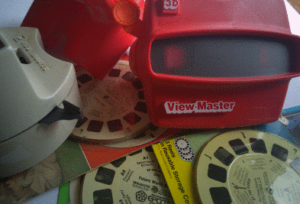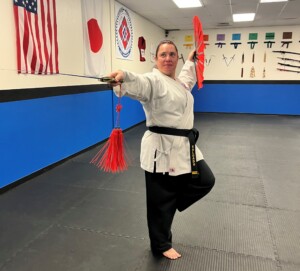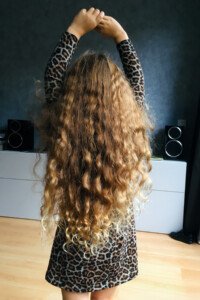In today’s environment, my childhood autistic signs probably wouldn’t have gotten missed by savvy teachers or perhaps my parents.
Perhaps your child has these traits?
If the autism education that’s on the rise today had been kicking up strong when I was growing up, I might’ve been diagnosed before college—even possibly in childhood.
The SIGNS WERE THERE. It’s surreal how those signs today would scream autism, while decades ago, they sunk below the radar.
In spring of 2022 I got a diagnosis I should’ve received in childhood: Level 1 Autism Spectrum Disorder.
Late life diagnoses in women are primarily the result of two things:
1) Growing up in an environment in which autism is associated with boys.
2) The (incorrect) belief that autism always presents with stereotypical behaviors such as difficulty with verbal communication, avoidance of eye contact, staring at fans for hours and erupting into “temper tantrums” over a change in routine.
My childhood was simple, and my schedule was controlled by my parents. It was predictable. I don’t recall too many sudden unexpected changes.
There were also changes that I welcomed such as having the furniture in the bedroom I shared with my sister rearranged (always a novelty!) and going on vacations.
I welcomed the change that was summer vacation from school. I dreaded the change that was school resuming in the fall, though I never acted this out.
We moved when I was four or five; I don’t recall my response. We moved again when I was 11, and I vividly recall desperately wanting this change.
We moved again when I was 15, and I wanted that change, too, including attending a new high school.
This drastic change was welcome because it represented a chance to start fresh and get away from classmates and teachers who thought I was weird.
But generally, I had always welcomed sameness, a basic routine and predictability.
I also want to point out that at around age five or six, I began exhibiting talent in music and art.
A quirky nature has always been associated with artists and musicians, especially if someone was both.
This was one reason why my oddities didn’t concern my parents. But there were also other reasons.
Autistic Traits in My Childhood that Got Missed
#1…Strange/Unusual Interests and Obsessions
The ones below were apparent to family members.
• Wanting to melt crayons (age 8 or 9)
• Car trunks that curved up at the end (younger than 9)
• Intrigue with seashells (started in early grade school)
• Fascination with window shades (9)
• A locally publicized missing boys’ case (10)
• Kohoutek Comet (10)
• Intense interest in accumulating houseplants (11-13)
• The movie “Jaws” and sharks (12)
• 1970s TV series “The Incredible Hulk” (15)
#2…Intense Focus Seemingly Beyond Age Level
• Highly skilled creating illustrations with the iconic Etch-A-Sketch
• Drawing talent
• Ability to compose simple songs on the piano
• Ability to play, by rote memory, piano music pieces (learned the “Bach Invention” at around age eight). It’s fair to note that this was possible only with my mother’s instruction.
• However, I also had the skill to figure out how to play piano songs by ear that I heard on TV such as “Nadia’s Theme” (played when gymnast Nadia Comaneci was shown in slow motion on the uneven parallel bars) and “The Lonely Man” (closing music for every episode of “The Incredible Hulk”) plus the “Hulk” love theme.
#3…Preference of Solitary Activities over Mingling with Other Kids
In grade school I had one friend — a playmate rather than a true friend — and only in grades two, three and four.
A bigger tipoff to autism was that I never showed any distress or sadness over my lack of friends.
It was apparent I was quite content with solitary activities such as drawing, playing the piano, using the Etch-A-Sketch, viewing the same slides over and over with the ViewMaster, riding my bicycle, puttering around outside in the yard and watching TV game shows.

The ViewMaster. ; CC-BY-SA-4.0orGradzeichen – CC-BY-SA-4.0, CC BY-SA 4.0 creativecommons.org/licenses/by-sa/4.0 Wikimedia Commons
I occasionally “played” with a new next-door girl two years younger, but she was a playmate of convenience — we actually had nothing in common; there was no emotional connection.
In junior high I’d get occasional phone calls, and at one point I was playing Monopoly every weekend with several other girls at Lois’s house. Lois and one of the other girls were considered nerdy. Hmmm….
In high school I had no friends other than a weekly jogging partner in 10th grade whose house I slept over one time, but my parents surely were acutely aware that there was some sort of deficiency in socializing with peers — especially since my two older sisters always had a fertile social life.
They were always involved with friends, while I was more interested in medical documentaries on TV such as the series, “The Body Human,” and science shows such as the acclaimed series “Cosmos.”
While my two older sisters often went out, my parents always knew where I was on weekend nights during my high school years: in my bedroom.
This surely was a relief to them, having already dealt with curfew issues, arguments about going out too much, etc., with my older sisters.
So though they were aware I wasn’t interested in a social life, this also brought them peace of mind.
#4…No Interest in Dating…Whatsoever
Never once did I mention dating or boyfriends during high school. I wasn’t interested. Never once did I express interest in going to proms or dances, nor did I ever feel any distress over never being asked to a dance.
#5…Sensory Issues
- Hated using standard-size spoons; it HAD to be a soup spoon for cereal, pudding and ice cream.
- Refused to drink out of plastic cups; it HAD to be glassware.
- At one point during young grade school I didn’t like my panties pulled up to my waist, and had them pushed down to my crotch. My mother found out and ordered me to wear them pulled up.
- Covered my ears during fireworks shows.
- Refused to eat bagels, which I loved, after watching my hamster cleaning itself while it was perched on its hind legs. The way the hamster’s underside bulged out near the legs resembled the inside of a bagel. It was a long time before I could resume eating bagels.
#6…”Obsession” with My Sister
She’s two and a half years older. She thought I was obsessed with her. And, according to autism literature, I was.
The obsession began around eight or nine and lasted a year or two.
She’d complain repeatedly to our mother that I kept “tagging along” with her. If she left the house to ride her bike, I’d follow.
When my sister left to ride her bike to a friend’s house, I’d watch her like a hawk through the living room window as she coasted down Brandon Street (which faced directly towards our house) until I could no longer see her. I’d worry she’d get kidnapped or hit by a car.
Sometimes her absence distressed me so much that I got into bed, hoping to sleep through the absence. I’d then be wakened by her voice somewhere in the house after she returned and feel this rush of relief.
At one point I took to planting myself on a chair in the den, from which I had a good view of the front door, the door to the garage and the porch door. This way I could monitor when my sister left the house so I could follow her.
My parents passed all of this neediness off to a child admiring her older sister.
#7…Serious and Matter-of-Fact Demeanor
I smiled and laughed a lot less than did other kids. As an autistic trait, this completely flew over my parents’ heads because both of them were kind of serious all the time as well.
Not all “serious” people are autistic, but when this is considered along with other peculiar traits, it makes the suspicion for autism quite strong.
#8…Advanced Vocabulary for My Age
#9…Strong Interest in Science
Easily off the radar screen, being that one of my father’s degrees was in engineering; and engineering was one of a much older brother’s college majors.
Another older brother had always been interested in chemistry, and my oldest sister had always been interested in medicine.
Thus, my interest in astronomy and bionics didn’t stand out to my parents, especially since my father enjoyed the TV series, “The Six Million Dollar Man.”
#10…Stimming
One time my mother and I had to share a bed when on vacation, and by then, I couldn’t fall asleep without a foot rhythmically flapping. My mother felt it and ordered me to “stop that.” It was difficult to suppress it.
My memory of other younger childhood stimming behaviors is poor. If I’d had a habit of frequently moving a body part while watching TV or drawing, I wouldn’t necessarily remember.
I rock (only in private), and I don’t know what point in my life this started up.
It’s entirely possible that my parents noticed a little rocking in childhood and thought nothing of it.
They certainly would’ve thought nothing of leg and foot movements while watching TV.
In fourth grade (and nobody knew about this) during classes, I habitually dug a finger in an ear to retrieve the wax, then smudged the wax on pages of my school textbooks.
I found this self-regulating. By school-year end, my textbooks had a lot of pages with “smudges” on them.
In junior high I began secretly plucking hair out the top of my head, within a surface area about the size of a quarter. I found it to be self-regulating.
A few months later I glided my fingertips over the area and felt stubble. Alarmed, I ceased this immediately.
Somewhere around adolescence I began chewing my tongue — repeatedly gliding my molars over the back of it — gently, of course. It could pass for slow gum chewing to an observer. I still do it to this day!
The case for autism is the strongest when a variety of behaviors, rather than singling one out, is considered.
If I were born in 2000, it’s very possible someone in 2010 would’ve spotted my peculiarities and recommended an autism spectrum evaluation.
Black Belt Karate Instructor Explains How Her Autism Was Missed in Childhood
Lena Salgado was diagnosed with autism at 37. She co-owns the Martial Science Academy karate school in Aurora, CO.
“Back in the 1980s and 1990s when I was growing up, nobody cared about why I was weird or had trouble with smells and held a blanket to my nose whenever possible,” says Lena.
“Or was incredibly picky with food and could only eat a few things.
“Nobody cared that noises and busy places bothered me. I was one of four kids with a single mother.
“People thought it was ‘cute’ when I would go down rabbit holes about certain topics and read voraciously.
“I was called Jabber Jaws for talking so much and told to be quiet a lot.
“I was functional enough to behave in school and that was all that mattered.
“In high school the only thing I knew about autism was a girl who the bullies would upset, and she would yell and run away crying. I constantly defended her, but I wasn’t the same.”
 Lena Salgado co-owns Martial Science Academy, teaching students of all ages and abilities the physical, emotional and mental benefits of Shito-Ryu Karate. At MSA, they strive to create a safe and nonjudgmental environment. MSA uses different approaches depending on each student’s learning style to make Karate accessible to all. Follow on Facebook.
Lena Salgado co-owns Martial Science Academy, teaching students of all ages and abilities the physical, emotional and mental benefits of Shito-Ryu Karate. At MSA, they strive to create a safe and nonjudgmental environment. MSA uses different approaches depending on each student’s learning style to make Karate accessible to all. Follow on Facebook.
 Lorra Garrick has been covering medical and fitness topics for many years, having written thousands of articles for print magazines and websites, including as a ghostwriter. She’s also a former ACE-certified personal trainer. In 2022 she received a diagnosis of Level 1 Autism Spectrum Disorder.
Lorra Garrick has been covering medical and fitness topics for many years, having written thousands of articles for print magazines and websites, including as a ghostwriter. She’s also a former ACE-certified personal trainer. In 2022 she received a diagnosis of Level 1 Autism Spectrum Disorder.
.
Top image: Shutterstock/Vitalinka
Autistic Special Interest vs. Neurotypical Hobby: the Difference?
Can Autism Be Ruled Out if the Patient Has Good Eye Contact?



























